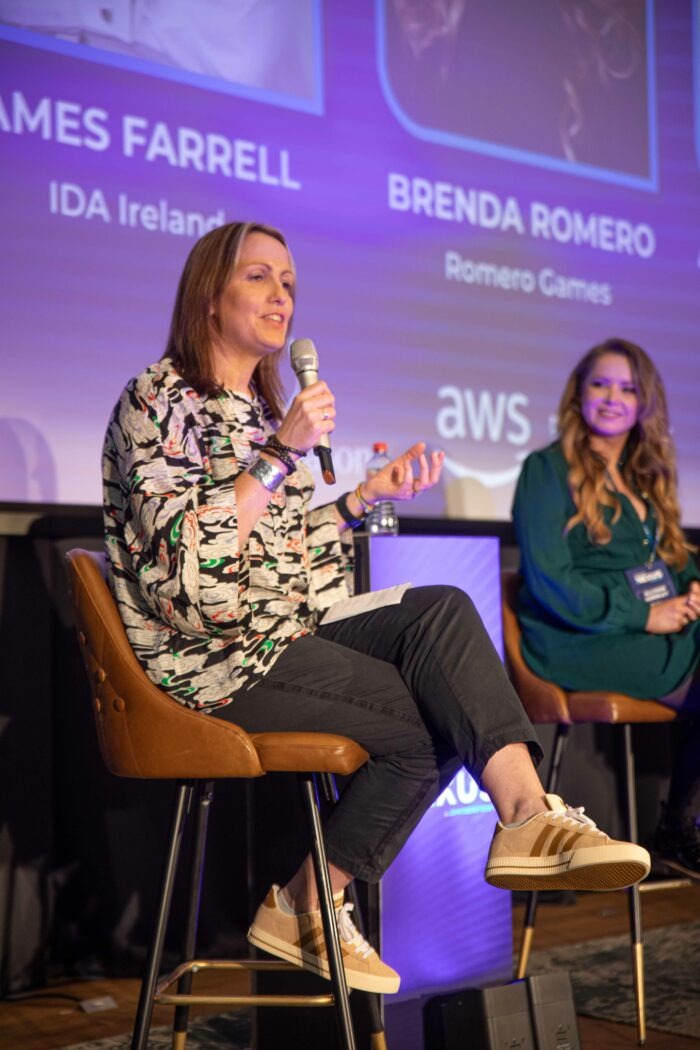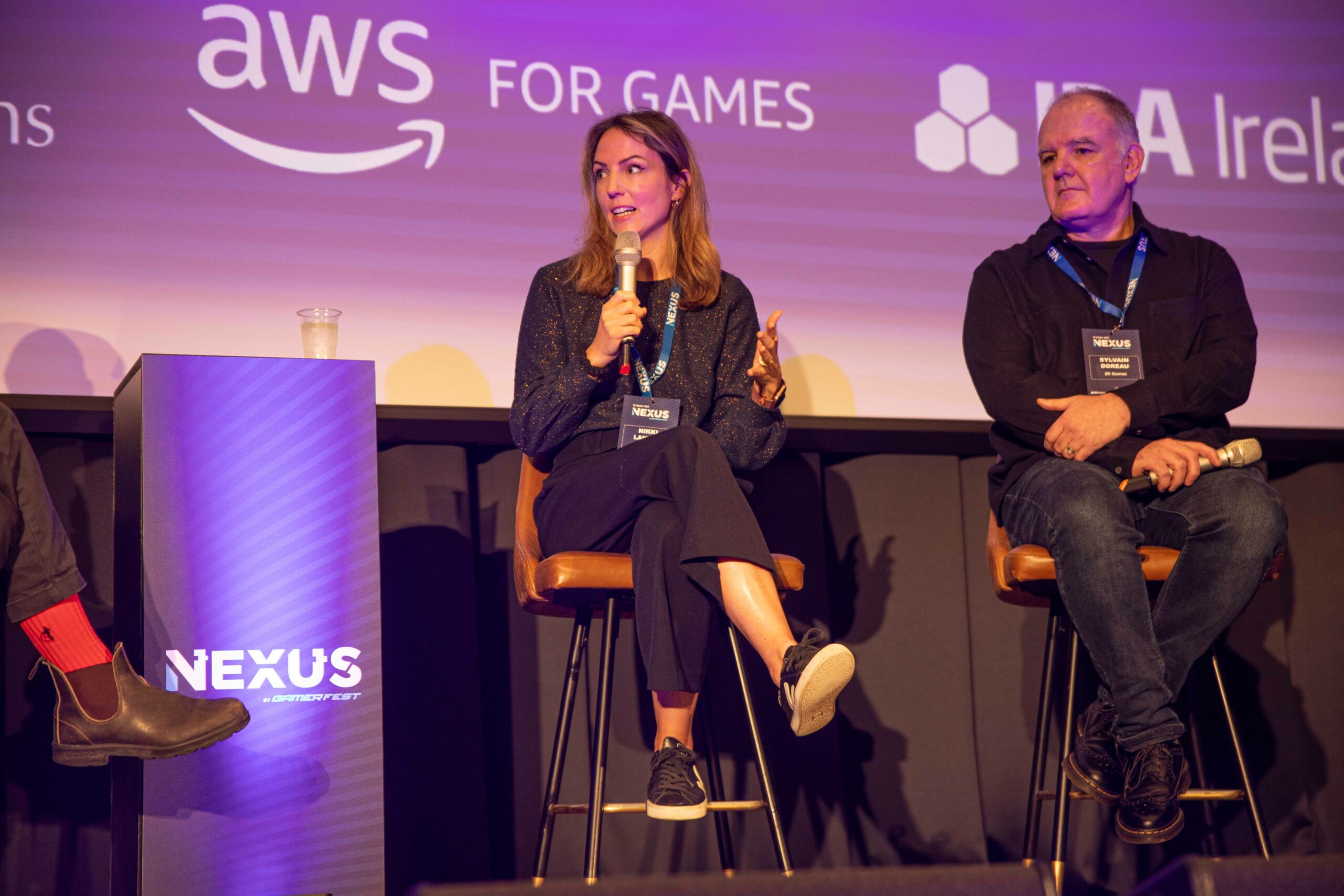If there was one word on everyone’s lips at 1 Windmill Lane this month it was “potential” as Nexus, a games industry conference organised by the gaming convention GamerFest, held its inaugural event.
The day was intended to bring together a who’s who in Irish gaming, from founders to investors to multinationals.
Ireland has a long-standing games industry with start-ups and FDI players but with the global games industry tipped to be worth $385 billion, Ireland remains a minnow in the grand scheme of things but for many advocates, there’s still a slice of the pie to be taken in Ireland that could prove substantial to the local ecosystem.
With the potential to be something much bigger on the agenda, the still-fresh digital games tax credit is on many minds as a possible accelerant but the difficult landscape currently for raising money casts a shadow too.
“I guess that is the state of Irish ecosystem right now. The digital games tax credit has just been approved and this goes for real growth within the market here,” Nikki Lannen, chief executive of WarDucks, told The Currency.
The tax credit will be of benefit to a company like WarDucks, Lannen said, and other Irish gaming start-ups that are going through the capital-intensive process of developing a game and bringing it to market.
But those Irish companies do not come out of nowhere. Ireland hosts offices of several major international games companies, many carrying out functions that support their broader games development functions globally.
Speaking during a panel discussion at the event, Lannen said that indigenous studios and multinationals exist in a symbiotic relationship with the massive companies often producing employees that break out on their own.
“We’re going to see a lot of new games businesses arrive from that,” she said.
That ecosystem has produced a number of new start-ups in the last several years like WarDucks with its VR games or Vela Games, which was established by former staffers at Havok.
There’s more to do though, according to Sylvain Doreau, senior director of creative development at 2K Games, the games giant behind franchises like BioShock.
“The growth is sustained by smaller studios and larger studios equally, bringing more and more bigger projects,” Doreau said.
Other countries have generated ecosystems of “satellite businesses”, he said, such as VFX studios that have been founded amid the talent generated by the larger companies.
“We need that here as well to support the pre- and post-game environment,” he said.
One of the major benefits Ireland has is the acknowledgment of the government when it comes to tax policy.
“When you work in the US, support from government is zero,” Doreau said.
Tax breaks and funding
This comes back to the much-vaunted digital games tax credit.
Under the credit, games developers can get a refund on corporation tax at 32 per cent for costs on the development up to €25 million.
According to one tax professional in attendance, founders are still wrapping their heads around the application process but ultimately it will be a boon to upstarts and midsize studios. Others said it is unlikely to attract the top-tier major studios to develop full games in Ireland as the costs of such games runs much higher than the €25 million cap.
While the tax credit will alleviate some of the financial burdens once a game is complete, the global funding environment continues to cast a pall over the industry.
“The market [for funding] is tough right now but it’s cyclical so it will come back,” WarDucks’ Lannen, whose company last raised funding in 2019, said.
Even in the good times, raising money for a video game is tough work. The route to market is challenging and when it is released, it enters a market flooded with thousands of games competing for eyeballs. On top of that the business models are constantly evolving.
Conall Ennis is corporate associate at law firm Pinsent Masons and regularly works with start-ups that are getting their houses in order to take on external funding.
He is seeing an increasing number of games and gaming related companies doing the legal prep work for funding rounds but games companies can have unique challenges, he said.
“Often times there can be issues in the cap table where investment that’s going in at the early stage has been done on not quite simplified enough basis, it’s been done with complicated instruments that haven’t been properly reviewed and it causes problems further down the line,” he said.
“It’s always best to keep the financing rounds simple so that when a new investor is coming in to look at exactly what the ownership structure of the company is, that it’s quite clear, that this person owns this, these shares been correctly issued, these loan notes have been issued and they’re due to convert at this price.”
A classic example of where a games start-up can trip up is in outsourcing work and what that means for intellectual property. A company may subcontract an outside artist to develop artwork for the game but the ownership of that artwork should always be attributed to the company and put in black and white from the get-go.
“You don’t want a situation where you’ve got the artists to do some small aspect of your game and the IP hasn’t been properly assigned to the company and then all of a sudden that creates issues over who actually owns the IP of the game.”
Championing Ireland
How to effectively market Ireland is on the mind of Tim Lion, who until recently was head of EMEA games marketing at Meta.
Lion told The Currency that there’s a need to make Ireland stand out among the pack in Europe.
“How do we establish a reputation as a hub for creation of and distribution of games in Ireland? I hesitate to be cynical but I worry sometimes that we hide our ability a little bit,” he said.
“I look at the way that market regions are broken down. When you look at EMEA, almost always Ireland is UK/Ireland in almost every organisation. You’re talking five million people versus 60 million people, Ireland doesn’t really get treated as a separate industry,” he said. “I think since Brexit there’s a real opportunity to seize on that as well, being the only English-speaking country in the European Union, proximity to the west coast of the US and now the tax credit.”
Perhaps the biggest champions of Ireland are John and Brenda Romero who moved to Galway from the States nine years ago to establish Romero Games.

John Romero is best known for creating the Doom video game series.
Speaking at the event, Brenda Romero said Ireland benefits from having a tight-knit games community and that she regularly touts Ireland as a location for US companies that are considering where to expand overseas.
“There was a time where we went through a rough patch and if we had been in Silicon Valley, that rough patch would have been sharks in the water. Instead it was the exact opposite here, ‘how can we help?’” she said.
But she acknowledges that global ructions could stymie those efforts at the same time.
“It feels Armageddon-y out there,” she said of the current down cycle in the broader tech industry.
“This is a pretty substantial cycle. I was there in the crash of ’83 so it does go through cycles,” she said, referring to the video games industry downturn 40 years ago. “This to me is more alarming than others because it’s not just a games downturn, it’s a big tech downturn.”
One need not look too far to see evidence of this. Epic Games, the maker of massive titles like Fortnite, laid off more than 800 people from its workforce in recent weeks while EA and Ubisoft slashed their headcounts earlier in the year.
All the while the recent misfortunes at tech giants like Meta and Google loom large.
Nevertheless, proponents of the industry in Ireland are forming a positive outlook for the future but one that will require navigating some choppy waters first.
The Currency was the media partner for the Nexus event.


